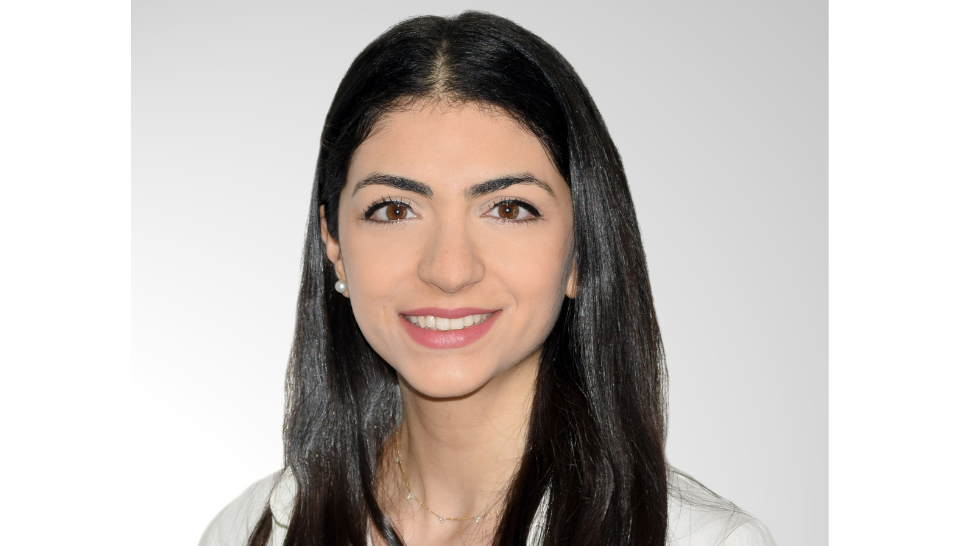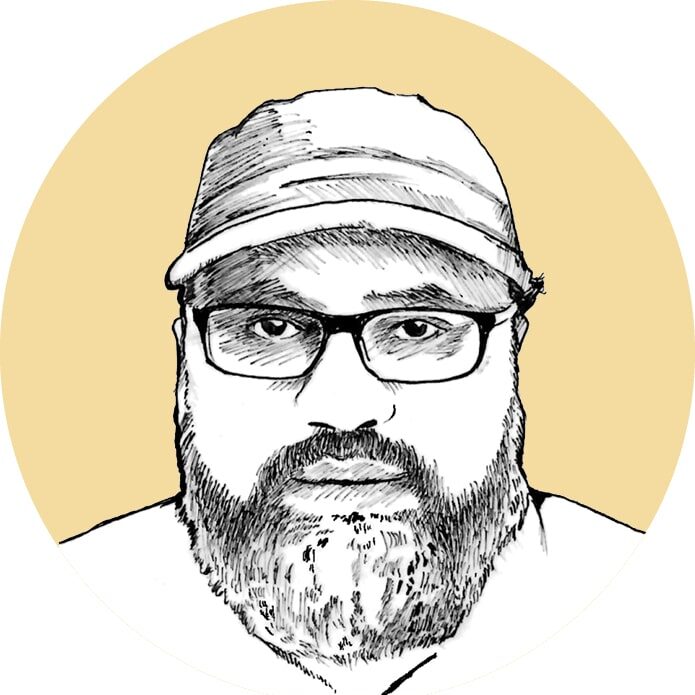Cypriot scientist and academic Xenia Miscouridou speaks to PANIS PIERI about artificial intelligence, data science, working with Google, as well as being involved with research and innovation.
It is a fact that Cyprus has amazing scientists around the world. One of these cool but down-to-earth scientists is Xenia Miscouridou.
Xenia has recently been recognized as one of the Forbes 30 under 30 Europe in the sector of science and healthcare.
Xenia is a Lecturer in Statistics and Machine Learning at Imperial College London, within a new research centre focusing on interdisciplinary AI research, bringing together academia and industry.
Xenia is the President of j-ISBA, the early career section of the International Society of Bayesian Analysis. She is active in promoting women in Data Science and Statistics through the organisation of events and workshops.
Xenia will be attending as a speaker a couple of events in Cyprus in the next few days. On Saturday (24/9) she will join the EcoxCyprus online meetup Can Cyprus become a global AI and Data Science Hub? and on Thursday (29/9) the Cyprus Forum.
Tell us a little about your story and why you got involved with Artificial Intelligence, mathematics and data science.
I studied Mathematics at Imperial College London, did a Master’s degree in Advanced Mathematics and Statistics at the University of Cambridge and then a PhD in Statistical Machine Learning at the University of Oxford. Machine learning is a branch of artificial intelligence that caught my curiosity during my Master’s, playing in this way a role in my decision to pursue a PhD in the area. Outside my topic of specialisation, I was always keen to learn more about new advancements in AI by studying publications in research journals and going to academic lectures or conferences. Throughout my PhD, in Oxford, I sought opportunities to collaborate with other researchers at NYU, the Alan Turing Institute, and DeepMind, as well as working for a short time as a Data Scientist in Google. After my studies, excited to see in practice the applicability of statistics and machine learning, I worked as a Machine Learning Scientist at AIG where I designed algorithms to give a business decision, which would otherwise be given by experts, automating in this way some parts of the internal processes.
What is the experience of working for big organizations like Google?
I worked as a Data Scientist at Google, Zurich in the Google Maps team. I was recruited as part of their cross-product initiative to introduce machine learning methods for more efficient data analysis aiming at overall product improvement. I was very excited about the work environment and the culture at Google as it inspires progress and innovation, making employees very happy to work there. This kind of culture encourages employees to take more responsibility and initiative outside their main duties. Google supports their employees to propose new ideas and lead the development of new innovative products, which also contributes to the company’s overall success.
What is your research about?
My research is in the field of Bayesian Statistics and Machine Learning. I am now a Lecturer at Imperial College London in the Department of Mathematics and a new research centre for Innovation in Digital Technologies, Artificial Intelligence and Machine Learning. This is a co-located collaborative environment for research, teaching and entrepreneurship where all Imperial faculties meet accommodating experts from the departments of computing, mathematics, engineering and business. My research area, as the name suggests combines statistics with machine learning aiming in this way to use the properties and advancement of both areas resulting in scalable rigorous methods with guarantees.
I focus on the development of Bayesian methodology for the modelling and prediction of structured data such as network data or other related data. Some application areas of my research are modelling real-life networks (e.g. social or biological) in order to predict their evolution or modelling spatiotemporal social or epidemiological data to uncover the trends that drive these events with the ultimate goal of answering questions that can guide public policy and have a positive social impact.
Outside of research, one of my ambitions is to promote and positively influence the culture of the international research community, to support young researchers achieve their dreams and to be a source of encouragement for women!
I am actively involved in initiatives of organising workshops and events to give support and to advise women studying in the field. Through such events, we promote and mentor women in the field consolidating their confidence and encouraging them to pursue a career in Data Science and Statistics
Xenia is part of the next generation of AI experts, studying at @UniofOxford and @turinginst, turning machine learning into practical solutions to worldwide problems #IndustrialStrategy pic.twitter.com/DAXWgHxjZA
— Department for Culture, Media and Sport (@DCMS) February 21, 2019
Recently you have been included in the Forbes Europe Under 30 list. How was the experience and how do you feel about this honour?
It is a huge honour for me to be included in the Forbes under 30 Europe list in the field of Science and Healthcare!
Every year, Forbes identifies 30 talented young people under the age of 30, in ten different industries (such as Science and Healthcare, Social Impact, Entertainment, Finance, Manufacturing & Industry etc.).
The process to join the list begins with a nomination in one of the ten areas. Candidates are evaluated by a committee which results in a shortlist. Subsequently, the committee asks the finalists for more information about the work, and in general their whole activity, and also asks them critical questions on current issues of economy, society, entrepreneurship and innovation to assess their understanding and critical thinking on matters of global importance.
My research work overall, my contribution to the global research space through boards for promoting young researchers, data scientists and diversity, and very importantly my work within the Imperial College London Covid19 team-who identified a new variant of concern and influenced decisions taken by WHO- have all played a role in receiving this award.
This international recognition is not just my personal success in the field of science but a representation of Cyprus globally as well as the representation of women. I hope that it will act as a source of encouragement and inspiration for every young person to reach their potential and pursue their dreams.
What are your predictions for the future of artificial intelligence, data science and algorithmic engineering?
Although this field has already shown great progress, we anticipate seeing further development in AI, ML and Data Science, more advancements in the field as well as greater use of it by society, in existing and new areas of human activity. Here I briefly discuss a few application areas of AI.
In medicine and healthcare, intelligent systems have shown to have great potential and many capabilities. Data science gives us scalable methods that can support the analysis of data of large scale and complexity and extract useful information. Intelligent machines have faster and immediate access to a large set of clinical data that can support the clinician’s work in diagnosis and decision-making. Similarly, we expect that intelligent machines will improve further, for the purpose of treatment, rehabilitation and clinical support.
Artificial intelligence will also influence the field of sustainability and sustainable development. Beyond the immediate changes that Artificial Intelligence and data science will bring to the industrial sector, its contribution will be significant in areas such as environmental problems, climate change and other great challenges of our century, such as urbanisation, the increase of population and energy.
Artificial intelligence will also create new services (as well as possible social issues at the same time). It will improve the ability to solve problems or even generate new ideas. It is likely that in the coming years, AI and robotics will be fully integrated into business operations – creating new AI-based products and services, as well as new markets and customers.
Finally, another field quite different from the ones mentioned above, but in which we are already able to see the influence of artificial intelligence, is Arts. Artists can utilise AI to create beautiful and unique pieces as they would in any other medium.
Artificial intelligence should be seen as a tool for the development of human creativity, and not as a risk of replacing humans with machines. At the same time, however, artificial intelligence developers have a huge responsibility to advance the field within an ethical framework, always respecting human intelligence, diversity and culture.
Cyprus has a strategy in the field of artificial intelligence. What do you think the state, the research and the business world should do?
Cyprus has made great steps in recent years in the field of scientific research and artificial intelligence. It has active participation in the European and global research space through new programs, initiatives and research centres.
It is important to continue this coordinated effort and support the strategy of Cyprus broadly in the field of scientific and technological development. This is a driving force for the development of other areas such as the economic development of our country, the improvement of energy consumption, the action on environmental problems, and the response to cyber security threats, all ultimately contributing to improving the quality of life.
There can be positive and influential progress in the field if we support the creation of AI technology development programs at all levels (academic, public, and private sector), the continuation of partnerships of Cyprus in international initiatives and the constant learning from the experts perspective, always aiming at ethical and reliable technology.
Artificial intelligence can upgrade our lives, as long as there is the right management, use and preparation on a scientific and social level. It is vital to establish legal frameworks that define the relationship between machines and humans and that determine the degree of admission and intervention of the machine in our lives. Intelligent machines are useful and necessary in our life as long as they are properly used under human guidance. It is therefore urgent that we are prepared as a society to embrace these new changes and ensure a smooth coexistence of technology and humans in harmony.
Will you stay in the research world or are you thinking about creating a Startup?
Currently, I am planning to remain in the research and academic world to continue my academic career and my research at a theoretical, methodological and applied level.
Creating a startup is something I find exciting and do have in mind for the future, and specifically, I would be interested in applying research methods to solve a problem with a high social impact. But before that, while working on my research goals, I am interested in working with existing businesses on a consulting basis.
It is among my primary goals to support and enhance research collaborations between Cyprus and countries abroad promoting the exchange and implementation of novel ideas. Beyond purely academic research, I find very exciting and promising, the collaboration between academia and industry, as it can result in truly impactful research and products. My ultimate goal is to contribute to the development and promotion of scientific research in Cyprus so that it is ultimately established as a research and innovation centre in Eastern Europe.







Click here to change your cookie preferences